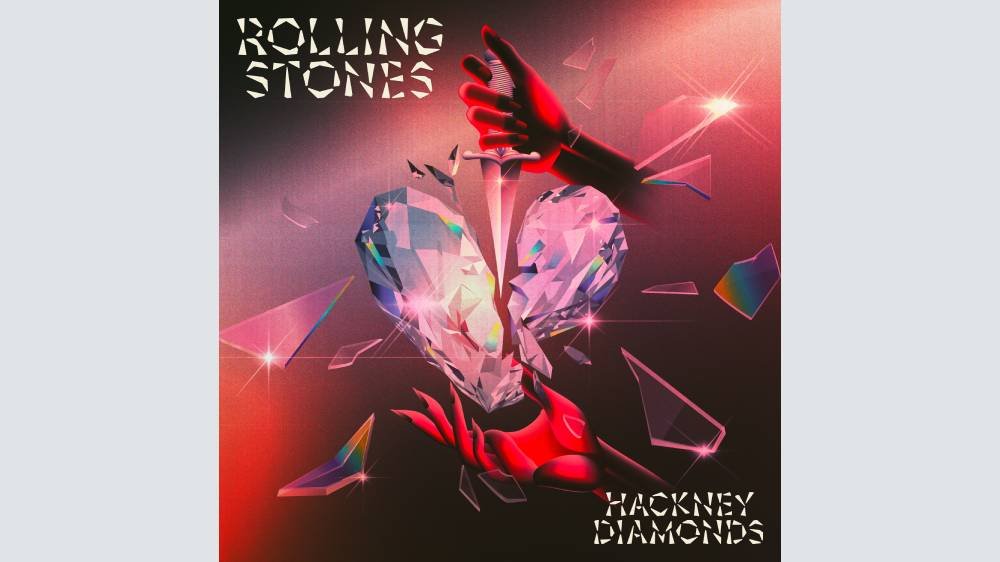Rolling Stones’ ‘Hackney Diamonds’: Album Review
[ad_1]
To put the rather overheated hype around the new Rolling Stones album in superfan-quibbling terms, “Hackney Diamonds” is not their best work since “Some Girls,” released some 45 years ago — but it is their best since “Tattoo You,” which is just three years younger. That the Stones have reached such a peak while grappling with what an octogenarian rock band should sound like — one that recently lost their drummer of nearly 60 years, no less — is perhaps the most impressive feat of all.
But the Stones have been here before — after all, they set the standard for how a 30-something rock band should sound, look and behave (and every decade since), and musically speaking, their greatest challenge has been how to evolve… and how much not to. The group seemed to concede years ago that, with such a legendary discography, new albums are almost superfluous; they probably grew so tired of “Here’s a new song!” being the bathroom-break cue for concert audiences that they figured, if you can’t top “Let It Bleed” or “Exile on Main Street,” why bother trying? Although they’ve toured nearly every year in the past decade, apart from a few stray tracks and a 2016 album of blues covers, this is their first new material since 2005’s “A Bigger Bang.”
However, adversity has historically brought out the best in the Stones, and the existential crisis of drummer Charlie Watts’ death in 2021 apparently sounded an alarm. The group united with 32-year-old Grammy-winning producer Andrew Watt — who has helmed hits for Post Malone and Justin Bieber but recently produced albums for Ozzy Osbourne, Iggy Pop and Eddie Vedder — and deliberately recorded most of this album quickly with drummer Steve Jordan, who was hand-picked by Watts to fill in for him on what was originally expected to be a temporary basis. And the results, while flawed, are much more lively and exciting than we had any reason to expect.
Most immediately impressive is the guitar work: For all his pop pedigree, Watt is an accomplished guitarist and he’s captured the fiery interplay between Keith Richards and Ron Wood — it sounds classic without feeling dated, which also can be said for a majority of the songs (despite some of the least-inspired lyrics of Jagger’s career). Most of them hew faithfully to the tried-and-true format of the group’s past 40-odd years — riff-based songs with a driving rhythm and spirited Jagger vocal, like “Angry” (which sounds much better without its inane video), “Mess It Up,” “Driving Me Too Hard”… you get the idea.
But there’s also the bluesy acoustic “Dreamy Skies”; the strongest Keith Richards vocal in decades on “Tell Me Straight”; and “Sweet Sounds of Heaven,” which is truly one of their best-ever soulful ballads. Unfortunately, the song is dragged down by guest vocalist Lady Gaga, who wails with impressive range but such a lack of nuance that it amounts to a master class in over-singing.
Fans may be wondering most of all what the band sounds like without Charlie Watts. For the most part, not that different: Jordan knows what the drummer in the Rolling Stones should sound like and he delivers — at several points you’d swear that whipcrack snare or tom-tom roll actually was Watts. Similarly, superstar guests Paul McCartney and Elton John respectfully fade into the Stones-scape of the songs they play on, fitting in rather than standing out.
Yet the album’s highlight is the one song where the band’s longtime lineup is reunited: “Live by the Sword” — not because the song itself is exceptional, but because it reunites the band’s peerless rhythm section of some 37 years, Watts and bassist Bill Wyman, and recaptures the inimitable laid-back uptightness that is a trademark of the Rolling Stones sound. Wyman once explained it by saying “Most bands follow the drummer. We don’t: Charlie follows Keith,” so the drums are a fraction of a second behind the beat. The bounce in the rhythm is unmistakable; longtime fans won’t even need to check the credits — they’ll know within seconds.
So could this be the last time? The closing track suggests it is: a cover of the traditional “Rolling Stone Blues” (also known as “Catfish Blues”), which is where it all started. The core trio — Jagger, Richards and Wood — give the song the traditional treatment it deserves, with appropriately bluesy guitars, some honking Jagger harmonica and a rough, demo-like quality to the sound.
If there’s a better way to end the Rolling Stones’ 60-plus-year recording career, it’s hard to imagine what it could be.
[ad_2]
Source link

